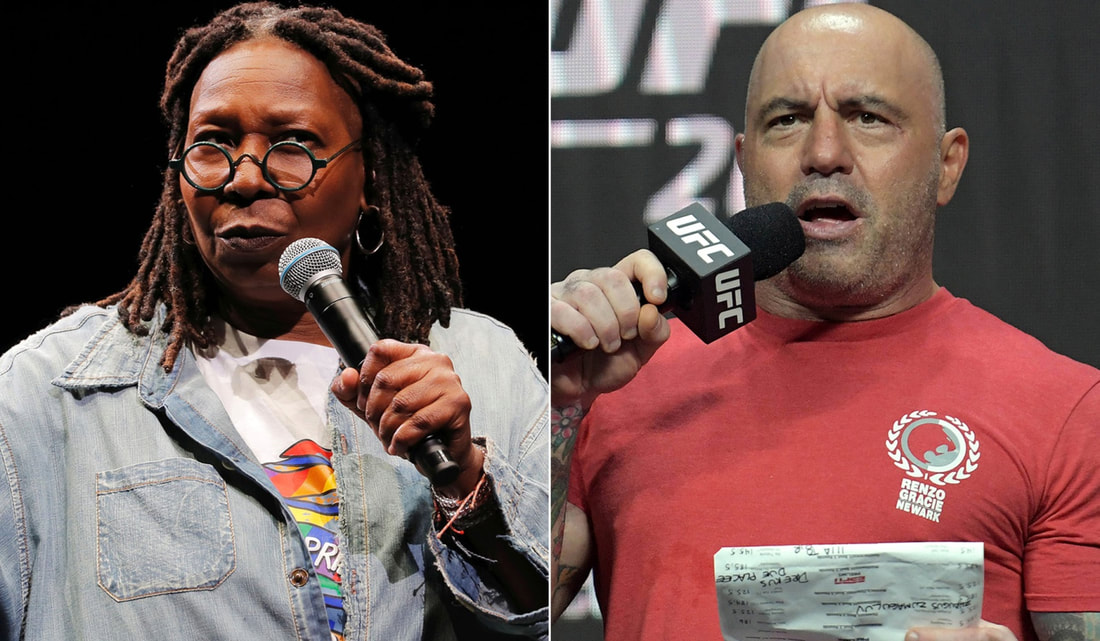|
Are we seeing the beginnings of a pivot from cancel culture to engagement culture?
Several major cancellations that before would already be done are, instead, frozen in mid-air. Spotify is visibly sweating bullets at the prospect of having to cancel Joe Rogan over Covid misinformation and racist slurs in the service of bad jokes. This can’t be an easy decision. Rogan’s podcast dwarfs the ratings of the most highly rated shows of the major television networks. And Rogan is a media giant because he is so different, exhibiting a naïve curiosity, a willingness to question anything and change his mind in the quest for the truth – and admit when he’s gotten something wrong. Whoopi Goldberg, who made an offensive remark about the Holocaust, has been cast out from The View for a fortnight to reflect on her verbal crime, as if she were an out-of-control toddler in need of a time-out. Illya Shapiro, the Georgetown scholar who in one inartful tweet questioned President Biden’s racial filter for his Supreme Court nominee, is now under “investigation” by his putative employer, Georgetown University. Maybe one or all will eventually be cancelled. But what if we instead turned to radical engagement? Why not have Whoopi Goldberg explain to Joe Rogan why a racial expletive told in jest from a white podcast host is still wounding? Why not have someone from the U.S. Holocaust Memorial Museum explain to Whoopi what was so offensive about her remark that the mass murder of Jews was “not about race”? Why not have CBS’s Dr. Tara Narula walk Rogan through his Covid claims and give skeptics something to think about? This is not to say that there are no cancel-worthy statements. And companies, whether Spotify or Facebook, do have their own right under the First Amendment to drop any speaker they choose. But, as David French argues in a brilliant essay in The Dispatch: “I have never in my adult life seen anything like the censorship fever that is breaking out across America. In both law and culture, we are witnessing an astonishing display of contempt for the First Amendment, for basic principles of pluralism, and for simple tolerance of opposing points of view.” Those who speak for a living will, over the course of years, eventually say something stupid or offensive. The problem is that critics now eagerly await their missteps so they can hit the ‘cancel’ button and eject those whose views they don’t like. As French points out, this tactic is now coming from the right as well as the left. In some cases, the honest intent of cancellation is to impose a kind of cultural hygiene. The problem is that culture doesn’t work that way. Cancellation leaves silence and cancelled speech – especially if it is ugly – acquires a kind of outré glamor for the impressionable. Apologies are taken as evidence of guilt instead of honest remorse. Most of all, the public loses the opportunity to hear real discussions. On the other hand, an engagement approach would be good for our culture. And not incidentally, it would create the kind of drama that would be good for ratings. Comments are closed.
|
Archives
June 2024
Categories
All
|
ABOUT |
ISSUES |
TAKE ACTION |



 RSS Feed
RSS Feed